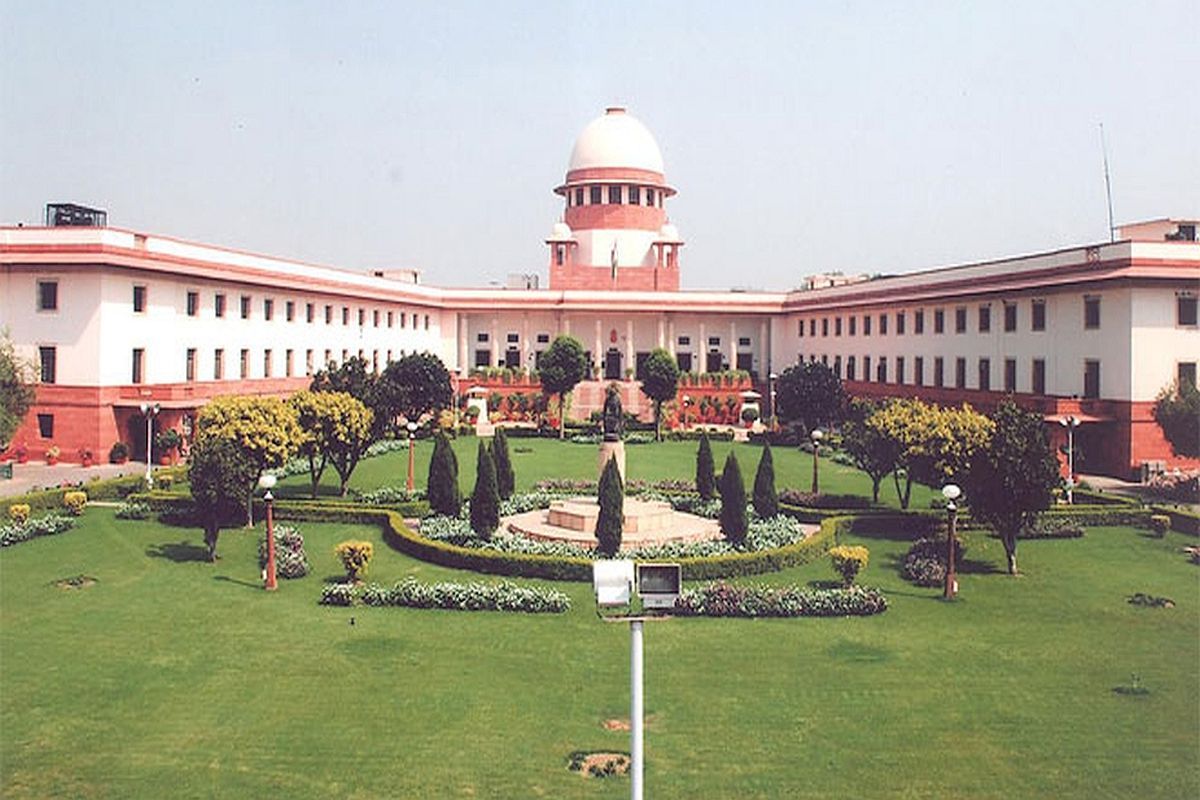The Supreme Court on Monday upheld the constitutional validity of SC/ST (Prevention of Atrocities) Amendment Act, 2018 that ruled out any provision for anticipatory bail for a person accused of atrocities against SC/STs.
The apex court said anticipatory bail could be granted only in cases where a prima facie case is not made out.
Advertisement
A bench headed by Justice Arun Mishra said a preliminary inquiry is not essential before lodging an FIR under the act and the approval of senior police officials is not needed.
Justice Ravindra Bhat, the other member of the bench, said in a concurring verdict that every citizen needs to treat fellow citizens equally and foster the concept of fraternity.
Justice Bhat said a court can quash the FIR if a prima facie case is not made out under the SC/ST Act and the liberal use of anticipatory bail will defeat the intention of Parliament.
The top court’s verdict came on a batch of PILs challenging the validity of the SC/ST Amendment Act of 2018, which was brought to nullify the effect of the apex court’s 2018 ruling, which had diluted the provisions of the stringent Act.
Earlier in October 2019, the Supreme Court had recalled its 2018 verdict that was virtually seen to dilute provisions of the law protecting Scheduled Castes and Tribes.
With this, the ban on immediate arrests on any complaint filed under the SC/ST Prevention of Atrocities Act, 1989, and the need for sanction before arrests linked to violation of the law, stood withdrawn.
A bench of justices Arun Mishra, MR Shah and BR Gavai had then observed that the struggle of SC/ST people for equality is still not over in the country.
The bench said SC/ST people still face untouchability, abuse and are being socially outcast.
The apex court further said that the Constitution provides for protection of SC/ST people under Article 15 but they still face social abuse and discrimination.
Dealing with the misuse of provisions of the SC/ST Act and lodging of false cases, the bench said it is not due to the caste system but due to human failure.
On March 20, 2018, a two-judge bench had ruled that no one can be arrested under the Scheduled Castes and the Scheduled Tribes (Prevention of Atrocities) Act without prior permission.
The court had also ruled that anticipatory bail can be granted if “no prima facie case is made out or where on judicial scrutiny the complaint is found to be prima facie mala fide”.
The bench had stated that a public servant can be arrested under the Act only after permission is obtained from the appointing authority.
Widespread violence was witnessed following the Supreme Court order on the SC/ST Act.
The Central Government then filed a review petition, but the Supreme Court didn’t immediately stay its verdict.
However, the Parliament on August 9, 2018, passed a bill to overturn the apex court order concerning certain safeguards against arrest under the Scheduled Caste and Scheduled Tribe law. The Scheduled Castes and the Scheduled Tribes (Prevention of Atrocities) Amendment Bill was passed by the Rajya Sabha. It had got the nod of the Lok Sabha on August 6.
The amendments rule out any provision for anticipatory bail for a person accused of atrocities against SC/STs, notwithstanding any court order. They provide that no preliminary inquiry will be required for registering a criminal case and an arrest under this law would not be subject to any approval.











